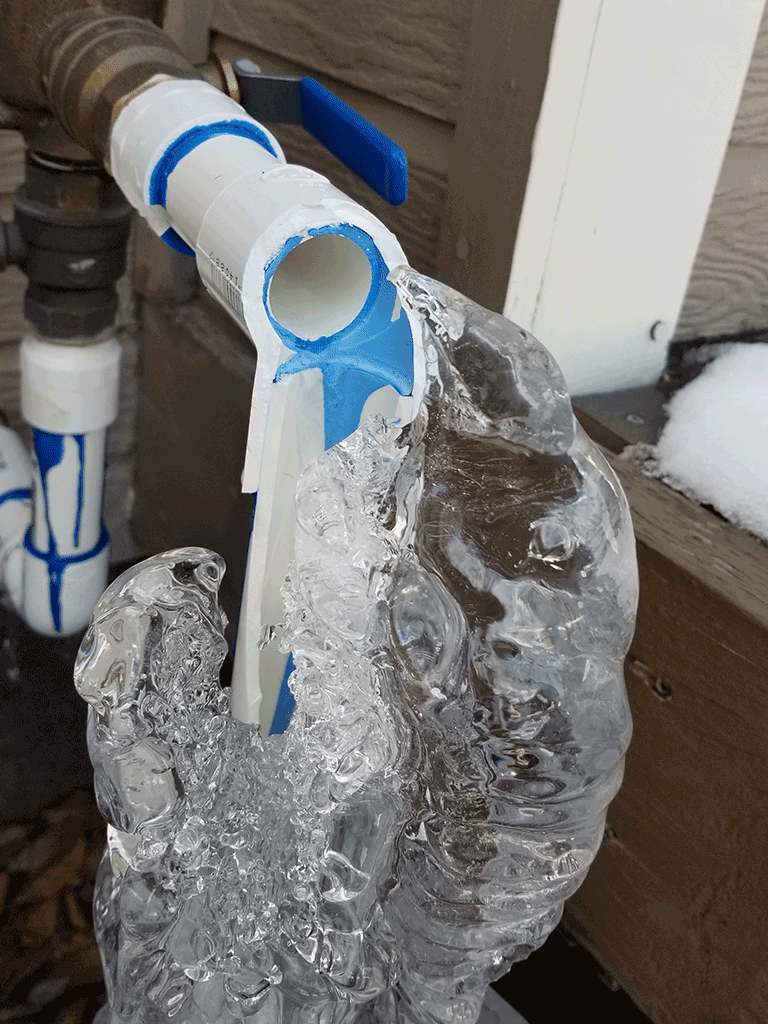How to Protect Pipes from Cold Weather Damage: Essential Tips
How to Protect Pipes from Cold Weather Damage: Essential Tips
Blog Article
How do you really feel about Helpful Tips to Prevent Frozen Pipes this Winter?

Cold weather can ruin your pipes, particularly by freezing pipes. Right here's just how to stop it from happening and what to do if it does.
Introduction
As temperatures decrease, the danger of icy pipelines boosts, possibly bring about pricey fixings and water damages. Recognizing just how to stop icy pipelines is important for house owners in chilly climates.
Prevention Tips
Shielding prone pipes
Wrap pipelines in insulation sleeves or utilize heat tape to protect them from freezing temperature levels. Focus on pipes in unheated or outside areas of the home.
Home heating methods
Maintain interior rooms appropriately heated up, especially areas with pipes. Open closet doors to allow cozy air to circulate around pipes under sinks.
Just how to identify icy pipelines
Look for reduced water circulation from faucets, unusual smells or sounds from pipelines, and visible frost on subjected pipelines.
Long-Term Solutions
Structural modifications
Take into consideration rerouting pipelines far from outside walls or unheated areas. Add added insulation to attic rooms, basements, and crawl spaces.
Upgrading insulation
Invest in high-quality insulation for pipelines, attic rooms, and walls. Correct insulation assists maintain regular temperature levels and decreases the risk of icy pipes.
Shielding Outside Pipes
Garden hoses and outside faucets
Detach and drain garden tubes before winter months. Set up frost-proof faucets or cover outdoor faucets with shielded caps.
Understanding Icy Pipelines
What causes pipes to ice up?
Pipelines freeze when subjected to temperature levels listed below 32 ° F (0 ° C) for extended periods. As water inside the pipes ices up, it increases, taxing the pipeline walls and potentially causing them to rupture.
Dangers and problems
Icy pipelines can bring about water supply disruptions, residential property damages, and costly repair services. Ruptured pipes can flood homes and cause extensive structural damages.
Indications of Frozen Water Lines
Determining frozen pipelines early can avoid them from bursting.
What to Do If Your Pipelines Freeze
Immediate activities to take
If you think frozen pipelines, keep taps available to soothe stress as the ice melts. Utilize a hairdryer or towels soaked in warm water to thaw pipelines slowly.
Conclusion
Protecting against frozen pipelines needs proactive procedures and fast actions. By understanding the reasons, indicators, and preventive measures, home owners can safeguard their pipes throughout cold weather.
Helpful Tips to Prevent Frozen Pipes this Winter
UNDERSTANDING THE BASICS: WHY PIPES FREEZE AND WHY IT’S A PROBLEM
Water freezing inside pipes is common during the winter months, but understanding why pipes freeze, and the potential problems it can cause is crucial in preventing such incidents. This section will delve into the basics of why pipes freeze and the associated problems that may arise.
THE SCIENCE BEHIND FROZEN PIPES
When water reaches freezing temperatures, it undergoes a physical transformation and solidifies into ice. This expansion of water as it freezes is the primary reason pipes can burst. As the water inside the pipe freezes, it expands, creating immense pressure on the walls. If the pressure becomes too great, the pipe can crack or rupture, leading to leaks and water damage.
FACTORS THAT CONTRIBUTE TO PIPE FREEZING
Low Temperatures: Extremely cold weather, especially below freezing, increases the risk of pipes freezing. Uninsulated or Poorly Insulated Pipes: Pipes located in unheated areas, such as basements, crawl spaces, or attics, are more prone to freezing. Insufficient insulation or lack of insulation altogether exacerbates the problem. Exterior Wall Exposure: Pipes running along exterior walls are susceptible to freezing as they encounter colder temperatures outside. Lack of Heating or Temperature Regulation: Inadequate heating or inconsistent temperature control in your home can contribute to frozen pipes. PROBLEMS CAUSED BY FROZEN PIPES
- Pipe Bursting: As mentioned earlier, the expansion of water as it freezes can cause pipes to burst, resulting in significant water damage.
- Water Damage: When pipes burst, it can lead to flooding and water damage to your property, including walls, ceilings, flooring, and personal belongings.
- Structural Damage: Prolonged exposure to water from burst pipes can compromise the structural integrity of your home, leading to costly repairs.
- Mold and Mildew Growth: Excess moisture from water damage can create a favorable environment for mold and mildew growth, posing health risks to occupants.
- Disrupted Water Supply: Frozen pipes can also result in a complete or partial loss of water supply until the issue is resolved.
WHY CERTAIN PIPES ARE MORE PRONE TO FREEZING
- Location: Pipes located in unheated or poorly insulated areas, such as basements, crawl spaces, attics, or exterior walls, are at higher risk of freezing.
- Exterior Pipes: Outdoor pipes, such as those used for irrigation or exposed plumbing, are particularly vulnerable to freezing as they are directly exposed to the elements.
- Supply Lines: Pipes that carry water from the main water supply into your home, including the main water line, are critical to protect as freezing in these lines can affect your entire plumbing system.
- Underground Pipes: Pipes buried underground, such as those connected to sprinkler systems or outdoor faucets, can be susceptible to freezing if not properly insulated.
https://busybusy.com/blog/helpful-tips-to-prevent-frozen-pipes-this-winter/

As a devoted person who reads on 6 Ways to Prevent Frozen Pipes, I imagined sharing that excerpt was really useful. Don't hesitate to pause to share this entry if you enjoyed reading it. Thank you for being here. Revisit us soon.
Call Today Report this page